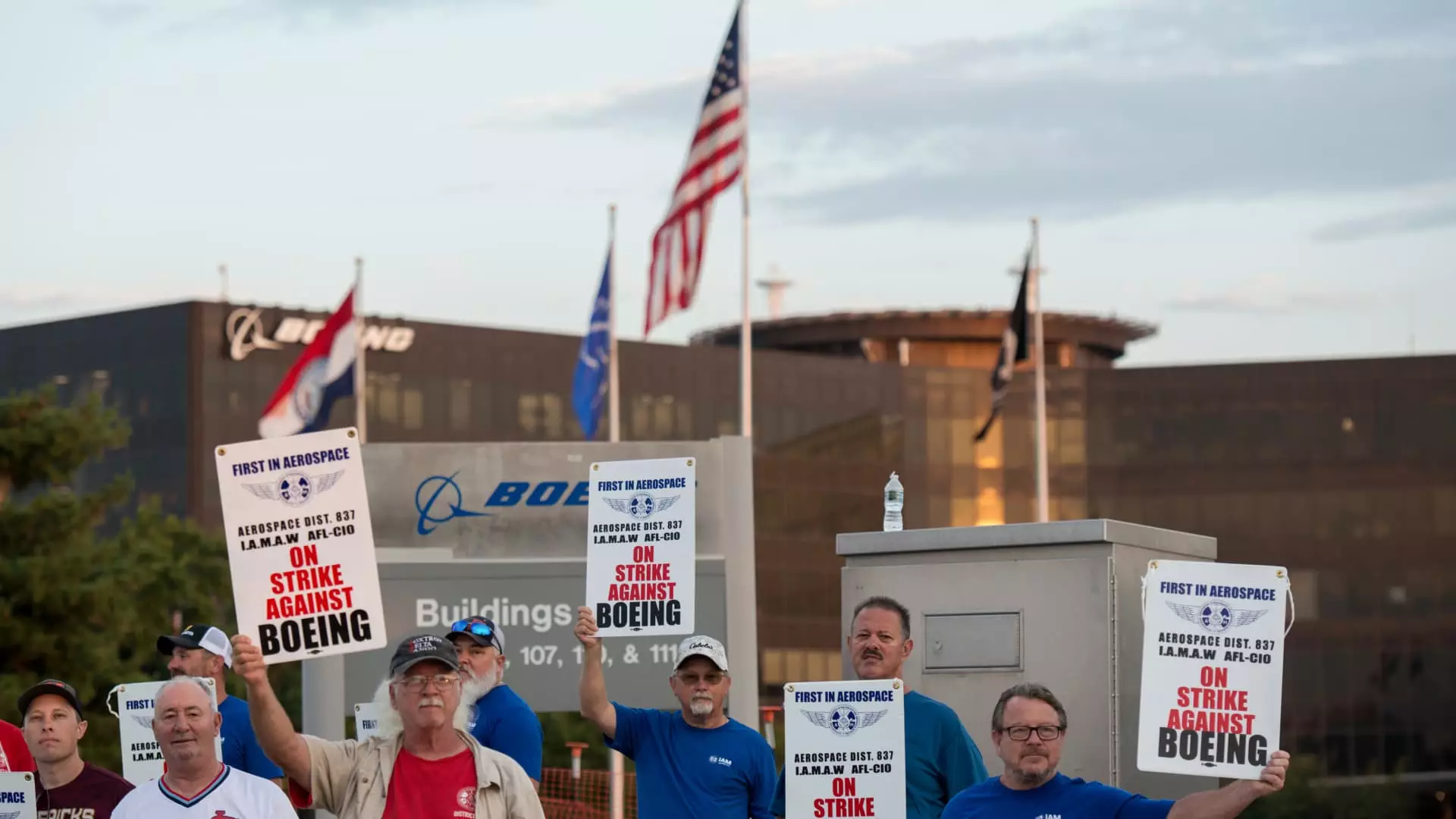Boeing’s aerospace division, particularly its defense unit, has reached a pivotal moment. For the first time since 1996, over 3,200 workers have taken historic action — a strike that underscores a wave of dissatisfaction that can no longer be ignored. This strike is not merely about wages; it encapsulates a broader cry for recognition, respect, and fair treatment in an industry that is pivotal to national security. The workers, essential for assembling and maintaining cutting-edge fighter jets and missile systems, have made a bold statement: their value must be reflected in the terms of their employment.
The rejection of Boeing’s latest offer, which proposed a 20% wage increase alongside bonuses and benefits enhancements, reveals underlying tensions. While on paper the package appears generous, union representatives argue that the contract failed to adequately address wage disparities at the top of the pay scale and the overall fairness of retirement plans. This reveals an urgent need for companies like Boeing to understand that compensation isn’t just about numbers; it’s about acknowledging the relentless dedication of these skilled workers. The union’s stance clearly signals that workers seek recognition that aligns with their expertise and the critical role they play in national defense.
Leadership Underestimating Employee Discontent
Boeing’s leadership, notably CEO Kelly Ortberg, has taken a dismissive stance toward the significance of this strike. His remarks suggest a conviction that the company can navigate the storm without serious repercussions. However, this attitude exposes a dangerous complacency. When a company’s defense workforce, responsible for vital military hardware, resorts to strike action, it’s a glaring indicator of deeper systemic issues.
Management’s confidence appears rooted in the belief that Boeing’s sizable financial cushion and diversified revenue streams will insulate the company. Yet, such shortsightedness disregards the potential long-term damage—staff morale, public perception, and operational stability. It’s easy to overlook the human element when focusing solely on quarterly earnings, but history demonstrates that ignoring worker grievances can inflict lasting scars on a company’s reputation and operational resilience.
Comparative Insight: A Telling Pattern of Discontent
Boeing’s current strike echoes recent labor disputes, notably last year’s massive walkout involving over 32,000 unionized machinists on Boeing’s commercial aircraft line. That strike ended after nearly two months of halted production, culminating in a substantial 38% raise over four years—an indication that worker leverage can, and often should, lead to tangible gains.
The contrast is stark. While commercial workers achieved significant improvements after hard-fought negotiations, defense workers’ demands seem to be dismissed as mere requests when, in truth, they represent a quest for dignity and security. This pattern suggests that Boeing, despite its financial might, may be underestimating the power dynamic at play. Worker unrest isn’t just about current wages; it’s about the fundamental acknowledgment of their indispensable role in safeguarding national interests and the company’s future.
The Broader Implication: A Wake-Up Call for Industry Leaders
This strike sends a clear message not only to Boeing but to all industry leaders: ignoring the voices of frontline workers is perilous. In an era where talent retention and morale are heavily linked to productivity, companies ignoring these signals risk long-term damage. The defense sector’s critical nature demands a different approach—one rooted in respect, fairness, and mutual understanding.
Boeing’s defense unit, responsible for nearly a third of the company’s revenue, must recognize that its workforce is the backbone of its success. If management continues to dismiss their demands as mere inconveniences, they risk losing not just skilled labor but also the trust necessary to sustain their innovative edge. True leadership involves balancing corporate interests with the dignity of its workers—only then can the industry evolve and thrive amidst the complexities of modern defense challenges.


Leave a Reply